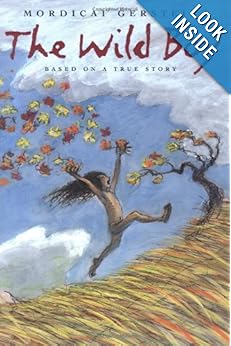QUIET 3
THE QUIET PLACE is a beautiful, tender tale of Isabella and her family who move to the US
from Mexico. Isabella misses all that
she has left behind, especially her Aunt Lupita and the sound of her own
language. In America she experiences
her first snowstorm and she turns a large box into her QUIET PLACE, where she
keeps her books and toys and writes letters to Aunt Lupita. In her box, she feels safe and at home, and
learns to adapt to her new life. Set in
the 1950’s and told through Isabel’s letters to her aunt, this is a story of
immigration and assimilation.
I read this story (at the school where I read stories and
majority of children are Hispanic) in
May at the close of the school year. I
had planned on reading it only to the 1st through 4th
grades, but….I recognized after the 2nd or 3rd reading,
that this was not only a timeless tale, but an ageless one. The 8th graders sat as spell bound
as the 1st graders.
I loved this story, not just
because it is exquisitely illustrated and touchingly told, but because it opens
up so many issues near and dear to my own heart.
Even although I was an adult when I
moved to States, I still experienced (sometimes still do) a deep longing for my
native land….homesickness. I too missed
my “language” (Scots English is different from American English). I too missed my family back in Scotland and
Ireland. And I too missed my history, my
roots, my identity.
This book also addresses what Doris
Lessing (British novelist, who grew up in Zimbabwe and won Nobel Prize for
Literature in 2007) calls – SPACE. When
reporters asked Lessing about her writing process, she told them that the
essential question to ask any writer was not how they wrote, with quill or pen
or word processor, but rather, “Have you found a space?"
because, Lessing claimed, " into that
space, which is a form of listening, the ideas will come.”
1. An
absence or near absence of noise
2. Peaceful,
calm, tranquil
3. Untroubled
4. Not
busy
5. Not
public
6. Secret
7. Modest
From the Latin – past participle –
quietus, from quierscere TO REST.
QUIET books, like quiet people,
teach us how to LISTEN. It is not only
writers who need SPACE, all of us do….and most especially, our little people
need SPACE – QUIET PLACES
Be it a big cardboard box,
A spot underneath the table,
A den at the bottom of the yard,
A grassy patch beneath an oak tree
In their SPACE, children can pause and ponder and wonder and...
REST
awhile,
They need REST in order to GROW.
“There is nothing so strong as
gentleness, and there is nothing so gentle as real strength.” Francis de Sales
(patron saint of writers)
QUIET LEADERSHIP is not an
oxymoron.” Susan Cain.
Shh….Shhh….Shhh……









